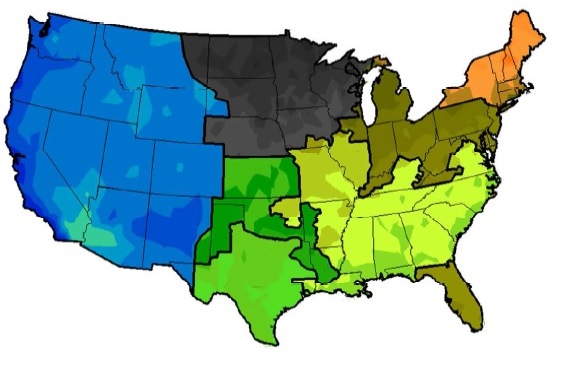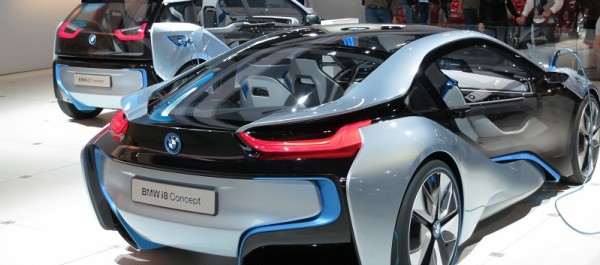Many car buyers weighing whether they should go all electric to help the planet have at least one new factor to consider before making the switch: geography.
Based on a study of a commercially available electric car, scientists report in the ACS journal Environmental Science & Technology that emissions and driving range can vary greatly depending on regional energy sources and climate.
Jeremy J. Michalek and Tugce Yuksel note that the transportation sector is responsible for 32 percent of carbon dioxide emissions in the U.S. To reduce this carbon footprint, some consumers are turning to battery-powered, all-electric vehicles, but many hesitate to make the switch because most models can only go about 70 to 100 miles on one charge.
 Charging electric vehicles in the upper Midwest (black) results in the highest average CO2 emissions in the country; the lowest associated emissions were in the West (blue). Credit: American Chemical Society
Charging electric vehicles in the upper Midwest (black) results in the highest average CO2 emissions in the country; the lowest associated emissions were in the West (blue). Credit: American Chemical Society
And that estimate is based on optimal conditions.
The overall vehicle efficiency decreases at cold and hot temperatures.
Michalek and Yuksel wanted to know exactly what can happen to the range and emissions across different regions of the country.
The researchers developed computer models that incorporated information on vehicle energy consumption, temperature and driving patterns from Nissan LEAF® drivers.
Their analysis found that because extreme temperatures affect battery efficiency and the use of air conditioning or heating, the electric car’s driving range could fall from 70 miles down to 45 miles on the most frigid days in cold regions such as the upper Midwest.
Temperatures above 100 degrees Fahrenheit in the Southwest can have a similar effect.
Also, regional differences in electricity sources played a role in the vehicle’s emissions, they found, with the upper Midwest having the highest levels, particularly in cold weather.
The researchers conclude that geographical differences are large enough that they could influence the energy implications of electric vehicles.
References:
Publication: Tugce Yuksel, Jeremy J. Michalek. Effects of Regional Temperature on Electric Vehicle Efficiency, Range, and Emissions in the United States. Environmental Science & Technology, 2015
Story: Electric-car driving range and emissions depend on where you live | American Chemical Society — February 25, 2015












Comments